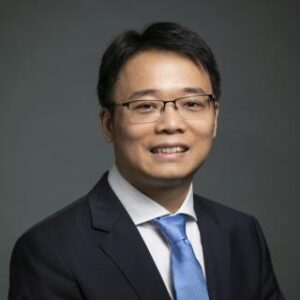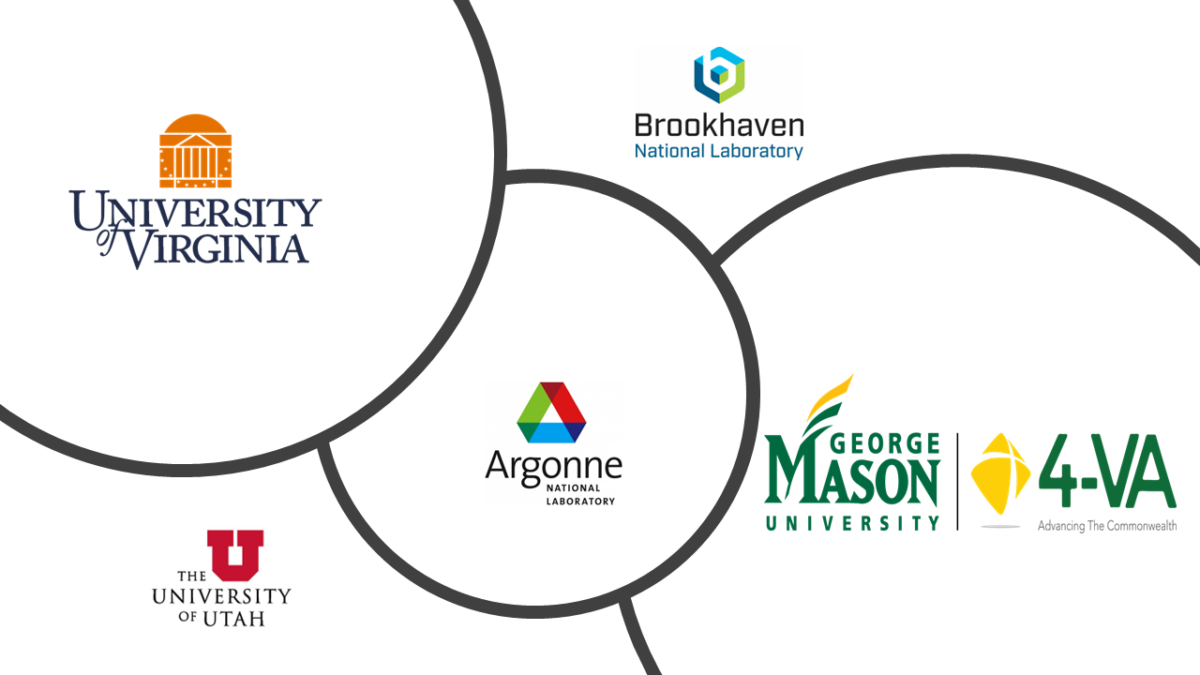
While 4-VA@Mason’s Collaborative Research Grants mantra is ‘two heads are better than one,’ Chao Luo, Assistant Professor in Mason’s Chemistry and Biochemistry Department, took this concept to the next level in his recent 4-VA research project titled “Metal sulfide-based nanomaterials for high-performance multivalent metal batteries.” For the task, Luo and his co-PI at UVA, Sen Zhang, assembled a team of 12 researchers, faculty, and students from five locations for an 11-month journey — yielding great success.
Luo’s primary research interest focuses on rechargeable batteries; however, he and Zhang were interested in exploring new materials and nanostructures for sustainable energy storage. Their goal? To design and synthesize polymer cathode materials and test the electrochemical performance of these materials in rechargeable magnesium and Aluminum-ion batteries, as well as redox-flow magnesium batteries, used for grid-scale energy storage.
With the 4-VA@Mason grant in hand, Luo assembled a team. He began in-house, identifying students who were interested in studying battery properties. Luo selected a postdoctoral student, Dr. Kaiqiang Qin, who received specific training on the project from Luo, as well as PhD students Kathryn Holguin, Motahareh Mohammadiroudbari, Eric Youngsam Kim, and undergraduate student Annieka Reno, who each performed experiments for the research. In addition, Luo reached out to prominent scientists, Enyuan Hu at Brookhaven National Lab, Zhenzhen Yang at Argonne National Lab, and Tao Gao from University of Utah, who agreed to advise on the study. Two graduate students from Brookhaven and Utah also volunteered on the project.
Regarding the research, Mohammadiroudbari noted, “Developing novel materials is pivotal to meeting the ever-growing demand for high-performance and sustainable batteries. It has been an exciting journey working with such a great team to evaluate the nanomaterials in multivalent metal batteries.” Team member Kim commented, “Research on sustainable batteries is important. It is exciting to research different types of batteries. This research was great to investigate various sustainable batteries.”
The research results were published in three journals – ScienceDirect, American Chemical Society, and Chemistry – and spotlighted via an in-person oral presentation at the 242nd Electrochemical Society Conference.
Based on the reception and the success, Luo is now applying for continued research support with the National Science Foundation, the Department of Energy, and Powerit.com.
Luo concludes, “The 4-VA@Mason grant offered me a valuable opportunity to collaborate with prominent scientists in Virginia and around the country. The team will continuously explore new materials and chemistries for sustainable batteries. This is the start of our journey to promote energy and an environmentally balanced future.”

